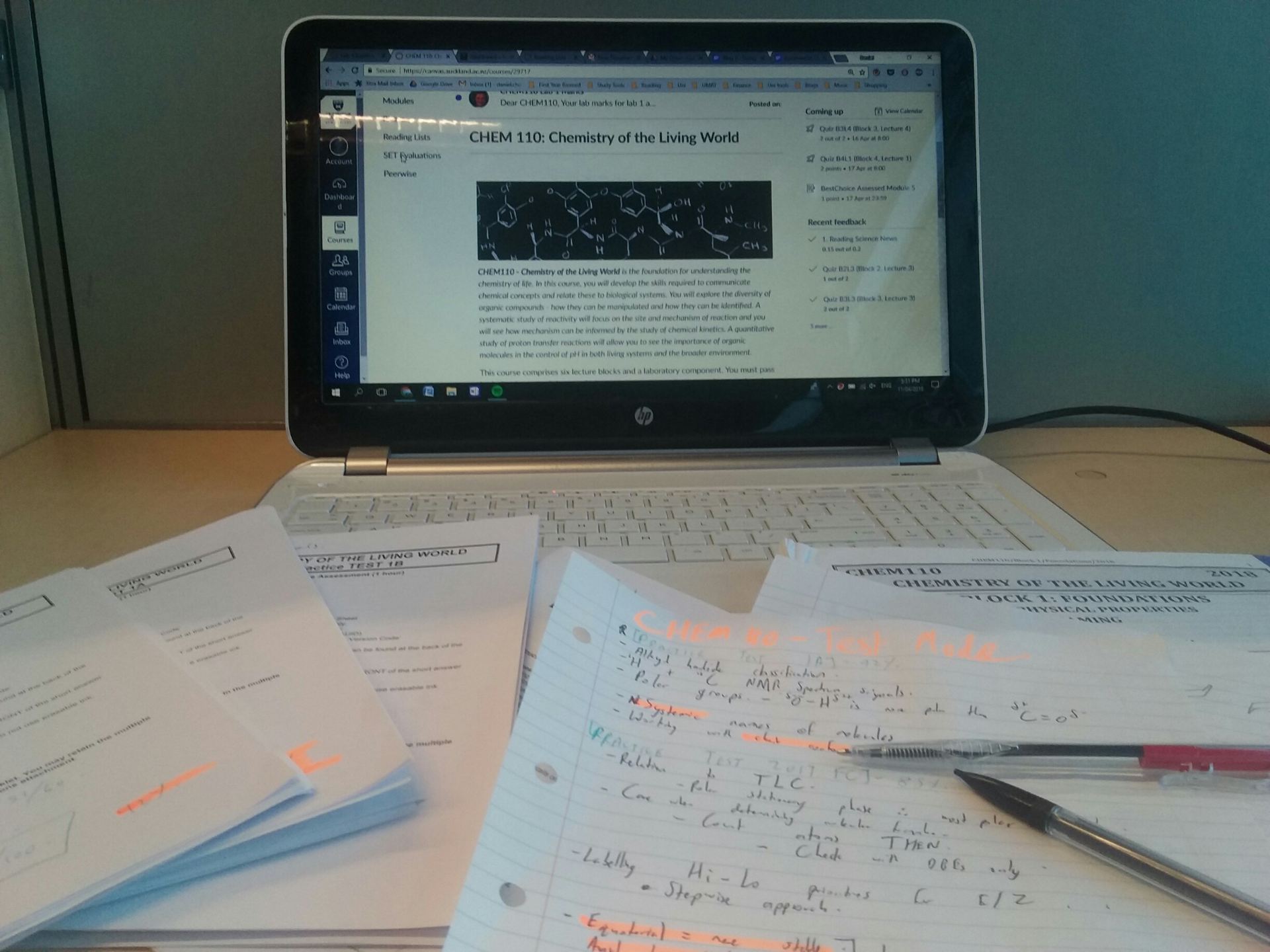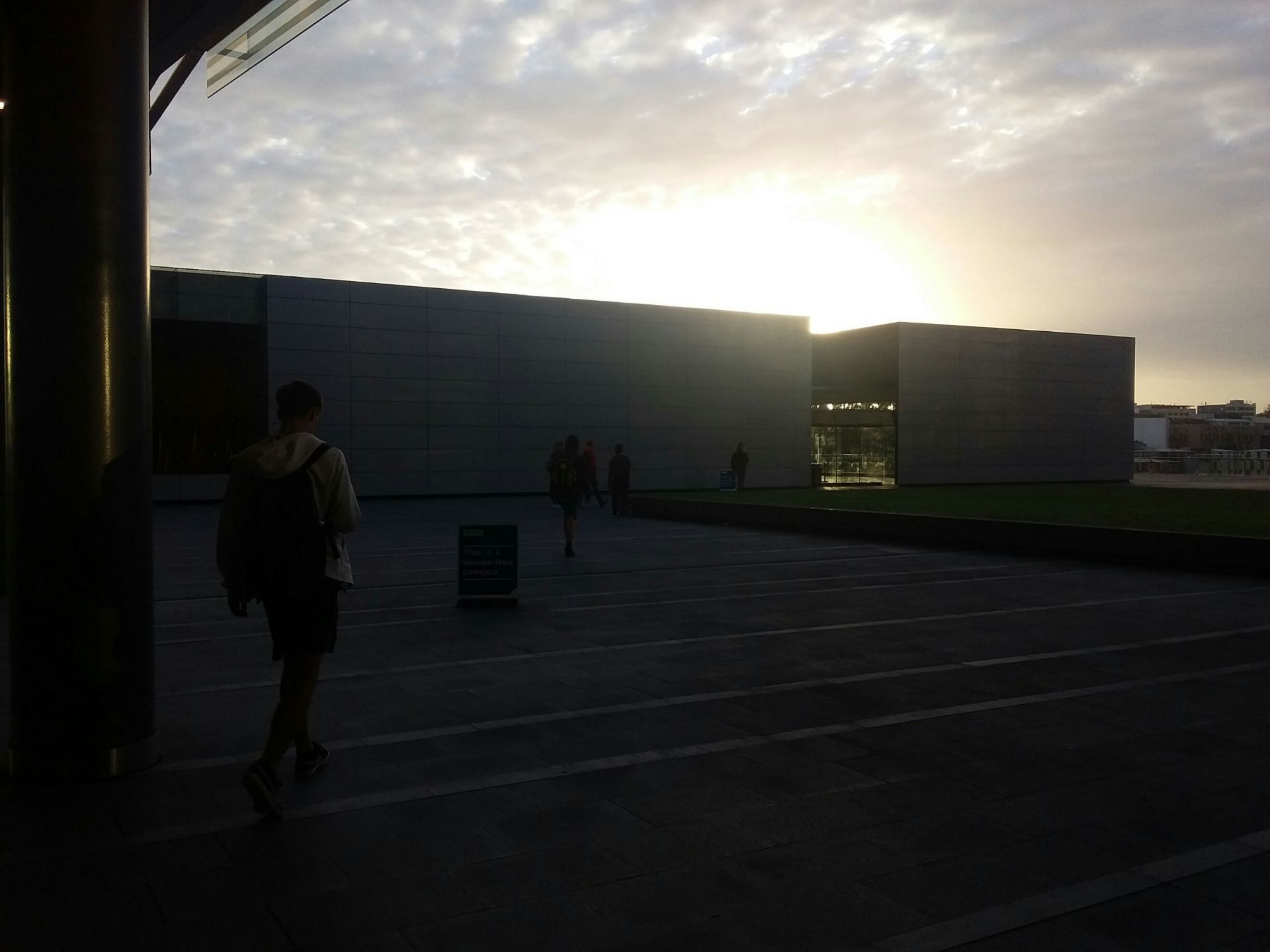Everyone learns in a different way. Therefore, everyone studies differently.
In the first year of university, the skill of effective studying is acquired by many individuals because it is necessary to be able to keep on top of the workload. This personalised style of learning is arguably just as important as the concepts and knowledge gained in the papers you take in the first year. Learning how you learn is a vital skill that will bring you long term benefits as you further your studies. What “study techniques” you may have used in high school may not work in uni with the drastic differences between the two.
“This personalised style of learning is arguably just as important as the concepts and knowledge gained in the papers you take in the first year.”
You (unlike myself and many others,) can save yourself a lot of hassle in the first stage of your university journey by finding an effective method of studying that suits you. If you’ve already got this all sussed before coming to university, this puts you at the forefront of the cohort and kudos to you!
In Part 2 of this blog instalment of “Starting Study” I’ll talk about how I study and how I figured out how I studied, however, for the remainder of this post I’ll cover the major differences between high school vs uni.
With the university approach to delivering content being so utterly different to that of your typical high school, there were many changes that had to be addressed when transitioning to the UoA. Here’s what I found the most different when coming to university:
[1] Attendance
As much as they may remind/threaten you that after the age of 16 you don’t legally have to be at school, for most people, there are consequences for not turning up to the ~30hrs of classes per week, even if you are a year 13 student and have practically outgrown school. However, this is not the case at university. In 2018, in the first year Biomedical Science course which I am taking, there are 12 hours of lectures per week … and you don’t even have to show up to any of them. There are options of morning and afternoon streams for most lectures as well as lecture recordings available online. As a personal preference, as it is for many people, the routine and discipline of attending physical lectures helps in learning and retaining information better.
However, there is a part of the papers I take that does require attendance or else you risk failing the paper. These are Labs, which are fortnightly three hour sessions of practical learning. Do turn up to those, you don’t have a say in that 😛
This also means that motivation to do well and to learn comprehensively must come from the individual. The toss up between a quality sleep in and attending an 8am lecture may be a common occurrence, and a very, very difficult decision to make.
[2] Content
There is a lot. Before I entered 2018, a friend told me that the information and concepts learnt in first year biomed weren’t overly difficult, but instead it was the amount expected to be learnt that made it so challenging. I find this to be true. Take this for example. It is what is assessed for one paper’s mid-semester test.
[3] Assessment style
The assessing style of the papers taken in biomed is also a massive change.
Approximately 70% of your grades depend on Multi-Choice Questions (MCQs) or Short Answer Questions (SAQs). The biggest benefit in this kind of assessment is not in the fact that you may have a ¼ or 1/5 chance of getting a question correct due to statistical probabilities; but instead in the way that you approach these questions. As the selection of answers provided includes one correct answer, if you have the knowledge somewhere in your head, seeing these options may trigger you remembering the answer, as opposed to having to come up with an answer from scratch. Be careful not to think that this makes exams easy, MCQs in uni are devious things. These questions often take a recall approach, where information from multiple sources is required to reach the right answer, or where all the answers are very similar, or where a fictional scene requires you to pull information from many different topics to come up with an answer.
But yes, be consoled that some university exams are MCQ. 😀
Most of all, these changes to university education have led to a more individually focused and motivated approach towards learning. “Starting Study: Part 2” will cover what techniques I use to keep on top of course content and how I prepared for exams.
If you have any questions or suggestions about what you want me to blog about, go ahead and leave a comment below!





What are some tips for finding an effective method of studying that suits one’s personal learning style?
tel u